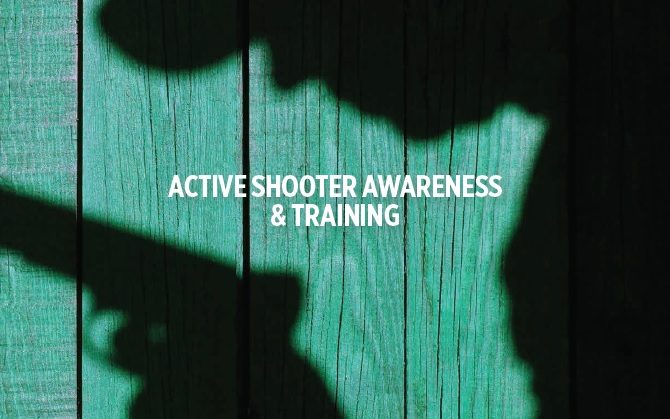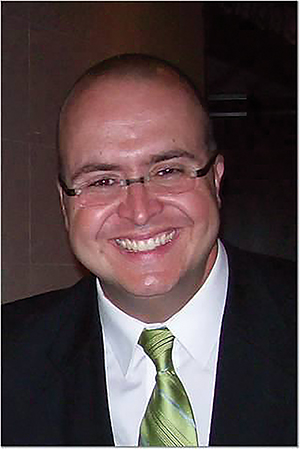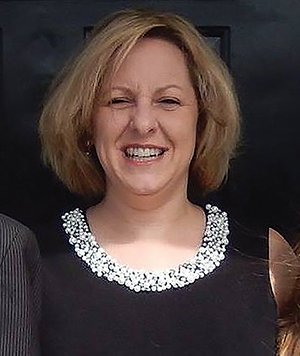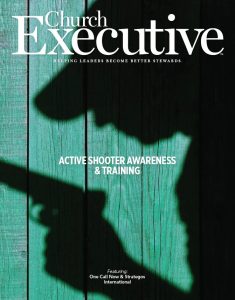
In a lot of churches, an “it-can’t-happen-here” mentality prevails.
So, how big of a threat is an active-shooter situation for churches in the United States? And more important, what can church leaders do to mitigate this threat?
We asked two seasoned church security experts for their thoughts.

Vice-President of Church Security Ministries
Strategos International
Overall, are most churches adequately prepared to respond to an active-shooter situation?
Barry Young: Churches are a soft target because everyone’s back is to the entry points, everyone’s attention is away from the entry points, and most churches take a cash offering.
Most churches, in my opinion, are not ready for an active shooter situation. In my experience, the majority of churches don’t have an immediate response plan to active violent threats.
In what ways can a church help prevent an active-shooter situation at their campus and make itself less of a target?
Young: Churches can help prevent an active shooter by developing a security ministry that makes sure any door that’s unlocked is manned. Churches can help prevent active shooters by developing a comprehensive church security and medical team that’s active from the parking lot to the pulpit — one that has real-world answers, from Band-Aids to bullets.
In the event of an unavoidable active-shooter situation, what are the most critical elements of an effective response plan?

Marketing Program Manager
One Call Now
Young: Churches have to be prepared to lock out, get out, and — in the worst-case scenario — take out.
What communication tools are at a church’s disposal to deploy in the midst of an active-shooter situation?
Hillary Bowling: A mass-notification system is ideal for everyday use and for emergencies.
When should this tool be acquired?
Bowling: Now! Having a system in use regularly will ensure messengers are trained on using the system, are comfortable with the system, and can even save messages in the system to send in case of emergency.
Who should be trained to use a mass-notification system, both staff and volunteer?
Bowling: Anyone who needs to message the whole congregation or groups within the congregation.
As the staff / volunteer force grows and shifts, how should this training be adjusted?
Bowling: Ongoing use ensures you’re ready to use the system when the unthinkable happens. If you have a messaging system but don’t use it regularly, monthly trainings are advised.
What form might that training take?
Bowling: Sample calls / emails / texts can be sent as reminders for fundraising, stewardship, festivities, weather events and more.
What is the typical learning curve for notification tools like these?
Bowling: One Call Now [ www.onecallnow.com ] is simple to use and can be used on the same day as purchase. Training takes very little time.
Is there anything the church-at-large needs to know / do to ensure the effectiveness of these tools?

Bowling: The church can work with their congregation to ensure they have updated contact information for members. The member list can be segmented into sub-groups for easy management of committees and to suit unique messaging needs. Messages can be sent via phone calls, texts, emails, and even social media postings, all through One Call Now.
Messages can be sent via phone (landline or smart), computer, or tablet. There is no software to download.
A few key takeaways to this effect:
• Tools for church security need to be acquired now.
• Volunteers and church staff should be trained in church security regardless of church size and staff size.
• Training should be done for real-world response. Lock down training is key; evacuation training is key; and lastly, response-to-threat training is key.
• Churches can be trained for basic response in a matter of hours. However, no one is ever perfectly ready; so, continuous training is a must.
• All churches, schools and businesses can be a target. You can’t assess risk until you accept risk.
Most churches don’t think it could happen to them — and that’s a big mistake. It is always better to be prepared for an emergency, and to do everything possible to keep it from occurring.
Barry Young, Vice-President of Church Security Ministries at Strategos International [ www.strategosintl.com ], was director of church security for New Life Church in Oak Grove, Mo., from 2012-2015 and director of church security for Crown Pointe Church in Lee’s Summit, Mo., from 2007-2010. He spent 10 years with the Independence, Mo. Police Department as a chaplain.
Hillary Keller Bowling has two Bachelor degrees and her MBA from Miami University. She is focused on serving communities of faith at One Call Now
[ www.onecallnow.com ] and is an active member of her parish and previous Sunday school teacher.


